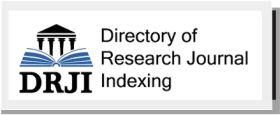Analysis of the Effect of Ethical and Benevolent Leadership on Job Satisfaction Mediated by Loyalty to Supervisors
Abstract
The development of a company depends on the leadership's ability to carry out their duties. The company's success can be achieved if good cooperation between the leaders and subordinates is carried out. Good collaboration between leaders and subordinates does not guarantee job satisfaction. This research aims to analyze the relationship between ethical leadership, benevolent leadership, and job satisfaction mediated by loyalty to supervisors. The research method used the purposive sampling method. Methods of data analysis using SMARTPLS with 75 respondents from 3 private companies operating in Purwokerto, Central Java. Data collection methods: observation, interviews, online questionnaires. The results showed that there was a significant influence between ethical leadership, benevolent leadership on loyalty to supervisor, there was a significant relationship between ethical leadership on job satisfaction, job satisfaction was not influenced by benevolent leadership, there was a significant influence between beenvolent leadership on job satisfaction mediated by loyalty to supervisor.
Keywords
Full Text:
PDFReferences
Brown, M. E., & Treviño, L. K. (2006). Ethical leadership: A review and future directions. The Leadership Quarterly, 17(6), 595–616. https://doi.org/10.1016/j.leaqua.2006.10.004
Brown, M. E., Treviño, L. K., & Harrison, D. A. (2005). Ethical leadership: A social learning perspective for construct development and testing. Organizational Behavior and Human Decision Processes, 97(2), 117–134. https://doi.org/10.1016/j.obhdp.2005.03.002
Chen, Z. X., Tsui, A. S., & Farh, J.-L. (2002). Loyalty to supervisor vs. organizational commitment: Relationships to employee performance in China. Journal of Occupational and Organizational Psychology, 75(3), 339–356. https://doi.org/10.1348/096317902320369749
Chou, W., Sibley, C. G., Liu, J. H., Lin, T., & Cheng, B. (2015). Paternalistic Leadership Profiles : A Person- Centered Approach. Group & Organization Management, (1), 1–26. https://doi.org/10.1177/1059601115573358
College, C. T. B., Chin, W. W., Marcolin, B. L., & Newsted, P. R. (2003). A Partial Least Squares Latent Variable Modeling Approach for Measuring Interaction Effects : Results from a Monte Carlo Simulation Study and an Electronic-Mail Emotion / Adoption Study. Information Systems Research, 14(2), 189–217.
Ding, D., Lu, H., Song, Y., & Lu, Q. (2012). Relationship of servant leadership and employee loyalty: The mediating role of employee satisfaction. IBusiness, 4(03), 208. https://doi.org/10.4236/ib.2012.43026
Farh, J.-L., & Cheng, B.-S. (2000). A cultural analysis of paternalistic leadership in Chinese organizations. Management and Organizations in the Chinese Context, 84–127. https://doi.org/10.1057/9780230511590_5
Farh, L. J. L., Liang, J., Chou, L., & Cheng, B. (2008). Paternalistic leadership in Chinese Organizations: Research progress and future research direction. In Leadership and management in China: Philosophies, theories, and practices (p. 171). https://doi.org/10.1017/CBO9780511753763.008
Jiang, D.-Y., & Cheng, B.-S. (2008). Affect-and role-based loyalty to supervisors in Chinese organizations. Asian Journal of Social Psychology, 11(3), 214–221. https://doi.org/10.1111/j.1467-839X.2008.00260.x
Kalshoven, K., Den Hartog, D. N., & de Hoogh, A. H. B. (2013). Ethical leadership and followers’ helping and initiative: The role of demonstrated responsibility and job autonomy. European Journal of Work and Organizational Psychology, 22(2), 165–181. https://doi.org/10.1080/1359432X.2011.640773
Kim, C. H., & Scullion, H. (2011). Exploring the links between corporate social responsibility and global talent management: a comparative study of the UK and Korea. European Journal of International Management, 5(5), 501–523. https://doi.org/10.1504/EJIM.2011.042176
Kovjanic, S., Schuh, S. C., & Jonas, K. (2013). Transformational leadership and performance: An experimental investigation of the mediating effects of basic needs satisfaction and work engagement. Journal of Occupational and Organizational Psychology, 86(4), 543–555. https://doi.org/10.1111/joop.12022
Li, Y., Xu, J., Tu, Y., & Lu, X. (2014). Ethical leadership and subordinates occupational well-being: A multi-level examination in China. Social Indicators Research, 116(3), 823–842. https://doi.org/10.1007/s11205-013-0321-z Ethical
Neubert, M. J., Carlson, D. S., Kacmar, K. M., Roberts, J. A., & Chonko, L. B. (2009). The virtuous influence of ethical leadership behavior: Evidence from the field. Journal of Business Ethics, 90(2), 157–170. https://doi.org/10.1007/s10551-009-0037-9
Neubert, M. J., Wu, C., & Roberts, J. A. (2013). The influence of ethical leadership and regulatory focus on employee outcomes. Business Ethics Quarterly, 23(2), 269–296. https://doi.org/10.5840/beq201323217
Pellegrini, E. K., & Scandura, T. A. (2008). Paternalistic leadership: A review and agenda for future research. Journal of Management, 34(3), 566–593. https://doi.org/10.1177/0149206308316063
Tupper, J. A. (2012). Treaty education for ethically engaged citizenship: Settler identities, historical consciousness and the need for reconciliation. Citizenship Teaching & Learning, 7(2), 143–156. https://doi.org/10.1386/ctl.7.2.143_1
Walumbwa, F. O., Mayer, D. M., Wang, P., Wang, H., Workman, K., & Christensen, A. L. (2011). Linking ethical leadership to employee performance: The roles of leader--member exchange, self-efficacy, and organizational identification. Organizational Behavior and Human Decision Processes, 115(2), 204–213. https://doi.org/10.1016/j.obhdp.2010.11.002
Wu, M., Huang, X., Li, C., & Liu, W. (2011). Perceived Interactional Justice and Trust-in-supervisor as Mediators for Paternalistic Leadership. https://doi.org/10.1111/j.1740-8784.2011.00283.x
Wu, M., & Wang, J. (2012). Developing a charismatic leadership model for Chinese organizations: The mediating role of loyalty to supervisors. The International Journal of Human Resource Management, 23(19), 4069–4084. https://doi.org/10.1080/09585192.2012.703420
Wu, T.-Y., Hu, C., & Jiang, D.-Y. (2012). Is subordinate’s loyalty a precondition of supervisor’s benevolent leadership? The moderating effects of supervisor’s altruistic personality and perceived organizational support. Asian Journal of Social Psychology, 15(3), 145–155. https://doi.org/10.1111/j.1467-839X.2012.01376.x
Yates, L. A. (2014). Exploring the relationship of ethical leadership with job satisfaction, organizational commitment, and organizational citizenship behavior. The Journal of Values-Based Leadership, 7(1), 4. https://doi.org///scholar.valpo.edu/jvbl/vol7/iss1/4/
Yu, R., Hung, Y., Yang, B., Lien, B. Y., Mclean, G. N., & Kuo, Y. (2010). Dynamic capability : Impact of process alignment and organizational learning culture on performance. Journal of World Business, 45(3), 285–294. https://doi.org/10.1016/j.jwb.2009.09.003
Zhang, Y., Huai, M., & Xie, Y. (2015). Paternalistic leadership and employee voice in China: A dual process model. The Leadership Quarterly, 26(1), 25–36. https://doi.org/10.1016/j.leaqua.2014.01.002
Zhu, W., May, D. R., & Avolio, B. J. (2004). The impact of ethical leadership behavior on employee outcomes: The roles of psychological empowerment and authenticity. Journal of Leadership & Organizational Studies, 11(1), 16–26. https://doi.org/10.1177/107179190401100104
DOI: https://doi.org/10.31334/bijak.v18i1.1237
Refbacks
- There are currently no refbacks.
Copyright (c) 2021 Majalah Ilmiah Bijak

This work is licensed under a Creative Commons Attribution-ShareAlike 4.0 International License.
View My Stats
ISSN 1411-0830 (Media Cetak) 2621-749X (Media Online)
Email : [email protected] / [email protected]
Website: http://ojs.stiami.ac.id/index.php/bijak/index
INDEKS BY:
|









1.png)










